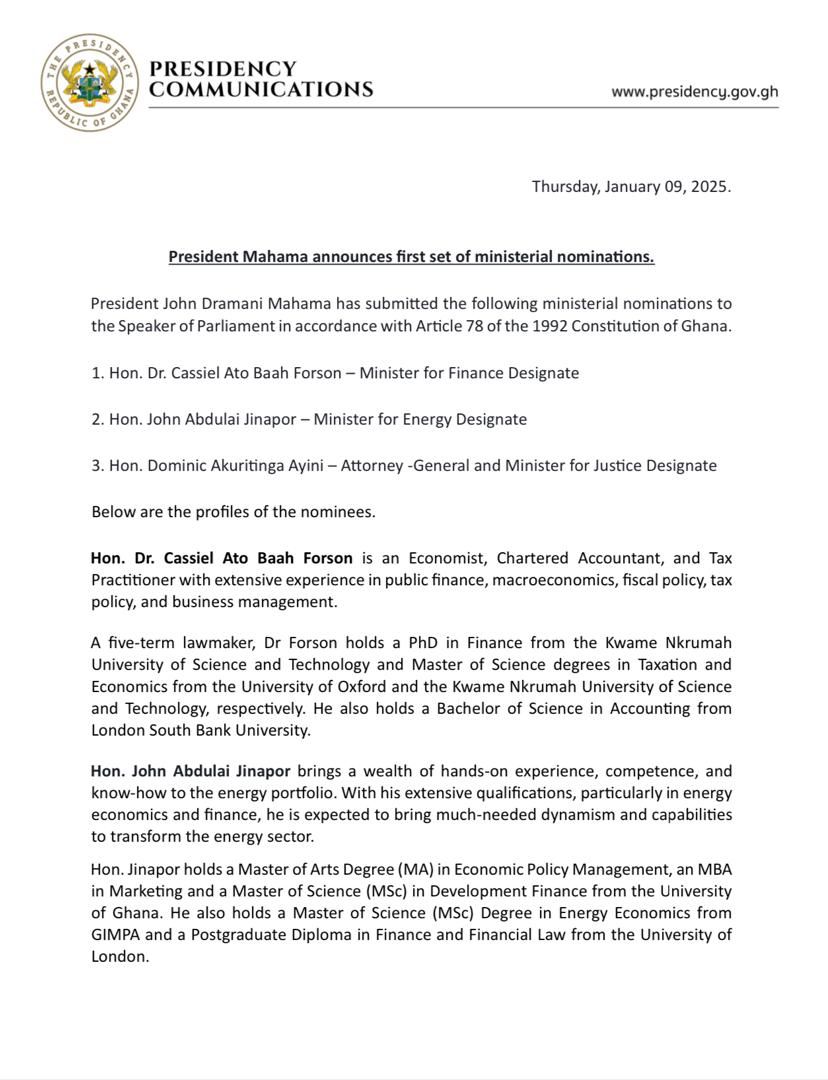AfricaAfrica PoliticsNews
Ato Forson named Finance Minister-designate; Ayine nominated as Attorney General

President John Dramani Mahama has announced his first set of ministerial appointments with Dr Ato Cassiel Forson, John Jinapor and Dominic Ayini grabbing key positions.
A statement issued by the presidency on January 9, said, President Mahama has submitted the ministerial nominations to the Speaker of Parliament, Alban Bagbin, in accordance with Article 78 of the 1992 Constitution of Ghana.
1. Hon. Dr. Cassiel Ato Baah Forson — Minister for Finance Designate
2. Hon. John Abdulai Jinapor — Minister for Energy Designate
3. Hon. Dominic Akuritinga Ayine — Attorney-General and Minister for Justice Designate







